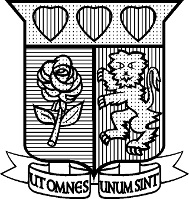Education in the Human Virtues as the Basis of Genuine Freedom
In Strathmore School, great stress is placed on developing human virtues, or strength of character, because these virtues enable a person to be self-directing in life – to be truly free. Freedom is not seen as mere freedom from constraints but as a capacity to carry noble convictions into action. Too often man finds himself limited and inhibited by his own failings, ignorance or unquestioning conformity. Ultimately, the capacity to truly love others and to be happy is a consequence of character with a well-rounded development of virtues. The family, where an overriding motivation is the welfare of the other members, is the environment “par excellence” for fostering virtue.
Man cannot live without love. He remains a being that is incomprehensible for himself, his life is senseless,
if love is not revealed to him, if he does not encounter love, if he does not experience it and make it his own,
if he does not participate intimately in it….
Pope John Paul II, Redemptor Hominis, 10
Teaching Virtues in the Family
A virtue is a readiness in one’s character to act in a particular way for a good motive. Simply speaking, it is a good habit and so is acquired by carrying out some good act with some regularity. Over time this regularity builds an enduring strength in one’s character.
Early childhood
In a young child the foundations of virtue are built by example, clear consistent guidelines, routines, close follow up, and punishments imposed without anger.
Later childhood
When a child is older the focus continues on orderly routines and clear parental expectations, but attention to his motives becomes more important. The child can be helped to reflect on his own actions by asking him to make certain decisions himself, by teaching him to learn from his mistakes and to have a optimistic view of difficulties, and, when necessary, by the imposition of punishments which are most effective when they help the boy remedy the consequences of his poor actions. In these years children are able to take far more responsibility for their own character improvement. They respond very well if encouraged to act from motives of charity towards a parent or one of their sisters or brothers. Home atmosphere and family example continue to play a major role, consolidating the habits acquired in earlier years. The value of a positive peer group becomes very noticeable also at this time.
Teenage Years
In teenage years, a boy or girl develops the adult capacity for independent action based on personal conviction. It is good and natural that teenagers should want more and more freedom and autonomy; it is a prerequisite for a mature personality. Parents should not be scared when they observe a growing independent spirit in their son or daughter. They should not react with panic and legislate rules as if their teenager were still a child. Nor should they retard the development of their offspring by smothering him with childish pampering. Nor should they look on fondly as their teenager exhibits every sort of silly, superficial behaviour, naively justifying it with words such as “kids will be kids”. Virtues are not fostered impersonally. A teenager will grow in virtue because he is encouraged personally to improve himself, to seek higher ideals, and to act from better motives. Parents must be in a position to talk frequently and confidently to their teenage son and daughter so that they can provide this affectionate encouragement. The foundations for such a relationship are sown in the friendship and time spent together in childhood years.
Only if such a close relationship exists will the firm, clear guidelines needed in teenage years be trustingly accepted. And only through such a close relationship will the parent have sufficient sensitivity and understanding for their teenager’ s thoughts and feelings, and sufficient respect for his or her legitimate freedom.
A suggested arrangement of virtues according to age
| Up to the age of 7 | From 8 to 12 | From 13 to 15 | From 16 to 18 | |
| Predominant
Cardinal Virtue |
|
|
|
|
| Principal
Theological Virtue |
|
|
|
|
| Key Human
Virtues |
|
|
|
|
| Result |
Happiness and human maturity |
|||
SOURCE: Redfield College, Sydney.

